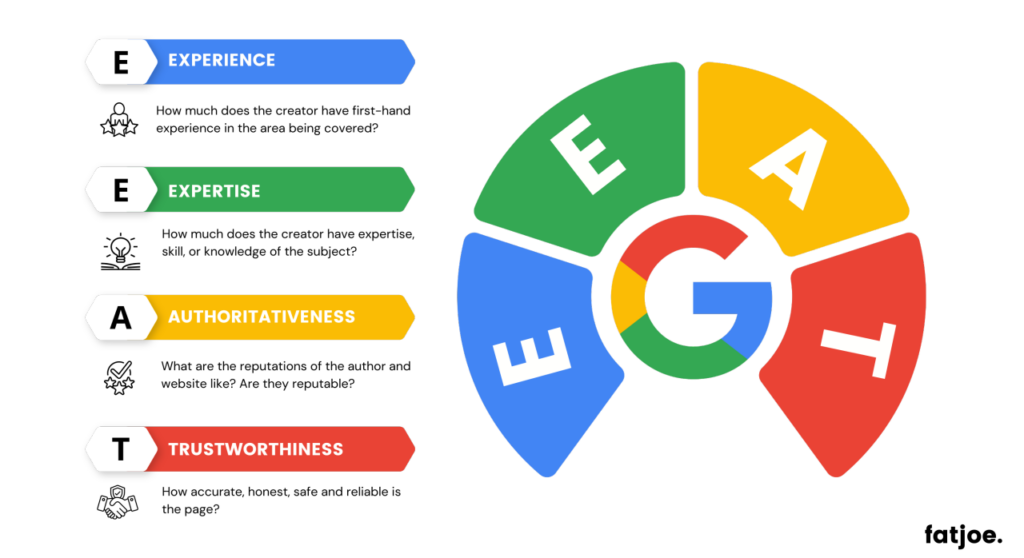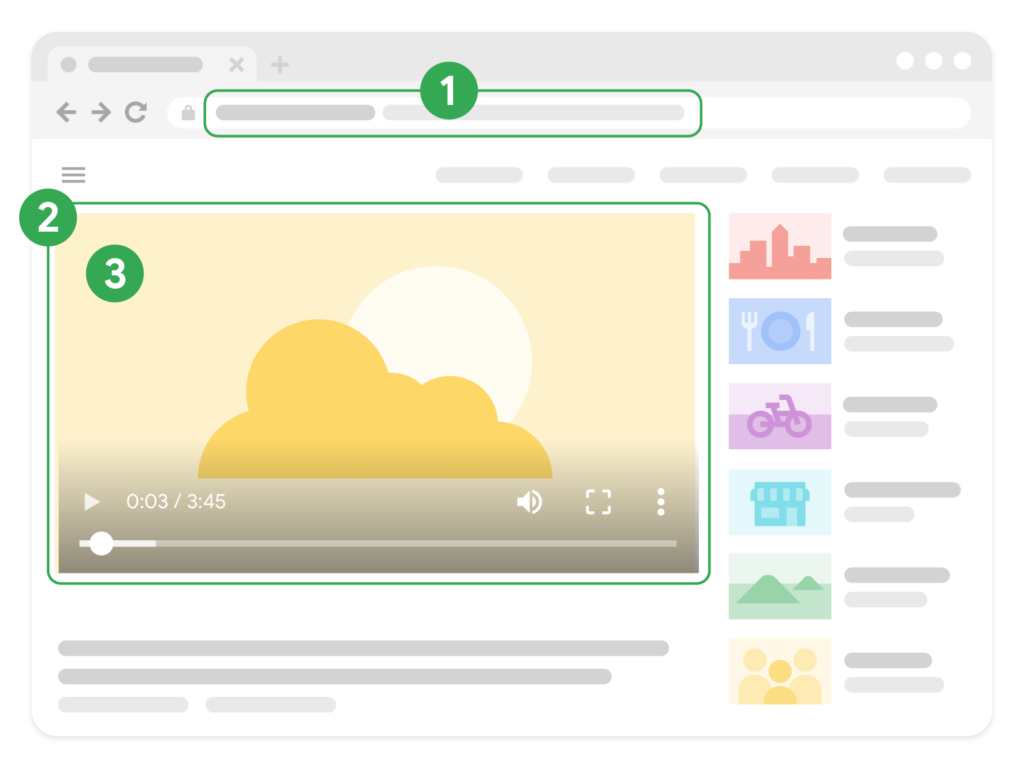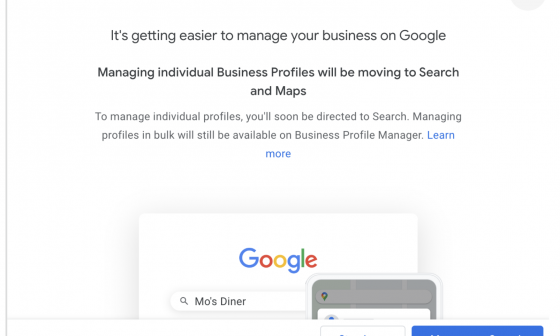AI will be much more impactful
AI as we see it today, is set to drive more impact in the coming years. With search engines relying more on AI to understand intent and deliver highly personalized results, businesses must tailor their content accordingly. Localized content that aligns with conversational queries like, “best coffee shop near me” or “affordable plumbers in [city]” will be essential. Those who embrace AI in their SEO efforts will likely stay ahead of the curve.
AI Overview and ChatGPT searches to witness heavy ad monetizations
By 2025, AI search tools and chat platforms will rely more on ads to generate revenue. Google has already started embedding sponsored content within AI overview summaries. ChatGPT and similar platforms are also looking into native ads and contextual recommendations to fund free or low-cost services.
While these new ad models may open pathways to new revenue streams, concerns about cluttered responses and potential bias toward advertisers still loom. To balance this out, companies are experimenting with different layouts to maintain trust with their users. This trend tells us how AI tools will evolve to stay user-friendly yet commercially viable in 2025.
UGC will be all over the place
We can expect the overbearing presence of user-generated content (UGC) in search results to shape how brands connect with consumers. Here are a few things you can look out for:
- UGC is gaining even more traction for its relatability. About 56% of users trust it more than traditional brand content, leading to a 28% boost in engagement for brands that leverage it. This trend will continue as consumers care about genuine experiences more than anything.
- Video content will still be on the rise with UGC videos showing click-through rates 400% higher than traditional ads. Expect search results to be dominated by engaging video content, especially in the e-commerce and lifestyle sectors.
- Platforms like Instagram and TikTok are becoming preferred search tools, particularly among younger users. Gen Z is leading this shift, opting for social media over Google to discover products and brands. This means more UGC will surface in search results from these platforms.
- Incorporating UGC can help improve SEO, drive much more organic traffic, also improve keyword relevance. User reviews, for instance, can boost product page rankings by 25%. Brands that embrace UGC can make the most out of these for better visibility.
- AI will play an important role in managing UGC, helping brands maintain content quality while maximizing volume. This will streamline the process of ensuring that UGC remains authentic and relevant
Personalizations to reach new heights
This will be majorly due to AI advancements and user expectations for tailored experiences. Search engines are expected to place more weight on matching content with individual search intent, behavior, and preferences, rather than broad optimization strategies.
As platforms grow and evolve, businesses will become more dynamic with their approaches. AI will also enhance SERP layouts by delivering personalized results, including local suggestions, recommended content, and real-time trends.
Moreover, social signals and user engagement will play a larger role, with search engines rewarding brands that build authentic connections across multiple touchpoints. Personalization will no longer just be a “nice to have”, it will become much more essential for standing out in a world where everything is mostly AI-generated.
Google Business Profile stays relevant
The Google Business Profile (formerly Google My Business) will remain central to local SEO success. As Google continues to enhance the Local Map Pack, businesses must ensure their profiles are complete and accurate. Keeping business info up-to-date, encouraging reviews, and adding high-quality photos will be crucial. A well-maintained profile can have a big impact on local search rankings.
To make sure your GBP stays relevant, here’s what you can do:
- Regularly update essential details like address, phone number, website, and operating hours.
- Add holiday or special hours to maintain trust and accuracy.
- Include relevant keywords in your business description, services, and updates.
- Optimize product listings and services to align with local search queries (e.g., “affordable plumbers in [city]”).
- Ask customers for reviews after a purchase or service.
- Respond to all reviews, especially negative ones, to demonstrate customer care and improve rankings.
- Use the Posts feature to share offers, events, announcements, or product updates.
- Posting consistently keeps your profile active, which signals relevance to search engines.

Source: Linkedin, Google Images
E-E-A-T becomes even more crucial
E-E-A-T (Experience, Expertise, Authoritativeness, and Trustworthiness) is a framework Google uses to assess the quality and relevance of content. It plays a critical role in determining how well content ranks, especially after algorithm updates like the August 2024 core update, which emphasizes meaningful content that aligns with user needs.
For businesses, this means the strategy is clear:
- Publish meaningful content whether that’s articles, videos, or even social media posts with genuine insights.
- Encourage customer reviews and build relationships with trusted sources to improve your authority.
- Make it easy for people to trust you by being transparent about your business practices and providing accurate contact information.
Mobile Friendly Sites are just as essential
With mobile usage continuing to be on the rise, having a mobile-optimized website is no longer just a bonus, it’s a necessity. Google favors mobile-friendly sites, so fast-loading pages and smooth user experiences across devices are essential. Make sure your site loads in under four seconds and navigation works well on smaller screens. When your website works well on mobile, visitors are more likely to stay, explore, and convert. Around 53% of mobile users will abandon a site if it takes more than 3 seconds to load. Mobile-optimized sites also build trust and encourage repeat visits. For local businesses, in particular, this is critical for customers to search for services on the go, so a fast, easy-to-use mobile site could be the difference between gaining or losing a sale.

Source: Google Images
Video SEO to become even more effective
With video content leading the way online, optimizing for SEO is a must. Focus on titles, descriptions, and tags that reflect what people are searching for. Use video sitemaps and schema markup to help search engines index your content correctly. Platforms like YouTube are very important. Encourage engagement, add captions for better accessibility and discoverability, and share across other platforms to expand reach. The goal is simple: make your videos easy to find, easy to watch, and worth interacting with.
Zero-click searches are on the rise
Zero-click searches are becoming increasingly common, with users finding what they need directly on search results pages without visiting external websites. Google’s featured snippets, knowledge graphs, and other search features are designed to provide instant answers, reducing the need to click through to traditional web pages. While this shift offers a more seamless experience for users, it presents a challenge for businesses relying on organic traffic. To stay ahead, it’s essential to adjust your SEO strategy by focusing on optimizing content for these search features. The goal is to balance between delivering quick, useful information and encouraging users to dive deeper into your site when they need more detailed insights.
Beyond Google and GPT
SEO will move beyond just optimizing for Google. With AI tools like ChatGPT becoming central to search strategies, users are shifting towards conversational platforms, preferring fast, direct answers over scrolling through multiple web pages.
This change means SEO pros will need to create natural, AI-friendly content that aligns with how people ask questions in real-time chats.
We’ll also see businesses expanding their presence across multiple platforms, like optimizing for voice search, smart assistants, and Bing’s ChatGPT integration. It’s no longer just about Google rankings; engagement metrics like interaction time and trustworthiness will carry more weight.
SEO specialists will also lean on AI tools to generate content and stay on top of search trends, while structured data and credible sources will become crucial for AI-generated responses. In order to succeed, businesses will need to focus on multi-platform visibility, conversational optimization, and delivering high-quality, authoritative content that AI tools trust and promote.

Source: Google Images, GemPages
The Shift Toward Visual Search
Content tailored to specific local audiences will be a big deal. Businesses should create content that speaks directly to their community, whether that’s blog posts about local events, partnerships, or customer stories. This kind of localized content strengthens ties with the community and improves SEO performance.
Social media is becoming a key driver of local traffic and engagement. Platforms like Instagram and TikTok are now hotspots for recommendations, making it important for businesses to build a solid presence that complements their SEO strategy. Engaging with customers through social media can boost brand trust and drive more traffic back to the website.
Ah yes, last but not the least, the yearly “SEO is dead” announcement, because nothing says tradition like predicting the demise of something that’s thriving.
SEO isn’t going anywhere; it just keeps evolving. Whether it’s AI reshaping search, new algorithms, or conversational queries taking the spotlight, SEO always finds a way to adapt. The rules shift, but the need for visibility never does. The internet will always need a new a better structure, and businesses will always need to be found. So, for anyone ready to declare SEO’s demise again this year, hang tight, because we’ll be doing this dance again in 2026.
Final Thoughts
In my opinion, the Local SEO landscape in 2025 will evolve with many more advancements in technology and shifting user behavior. Staying ahead means focusing on AI integration, user experience, and search intent actively while creating content for search engines.
Remember, Prioritizing high-quality content, mobile optimization, structured data, and local engagement will help businesses align with both search engines and user expectations. With the growing impact of video, visual content, and social media, businesses can build their online presence and focus on forming stronger connections with audiences.
Upcoming Developments and Trends in Local SEO: Predictions for 2025 – FAQs
1. What is the SEO prediction for 2025?
In 2025, AI-driven search, user experience, and voice search optimization will take center stage. Content must be hyper-relevant, conversational, and crafted to align seamlessly with varied search intents, ensuring it engages, informs, and converts to your target audience. It should also
2. What is the future of SEO in 2030?
By 2030, advanced AI and personalized search will reshape SEO. Voice, visual, and AR/VR search will blend smoothly into everyday experiences, with the focus shifting to user engagement and real-time data insights to keep content relevant and impactful.
3. What is the future of SEO in 2024?
In 2024, local SEO will take the spotlight as businesses adjust to evolving consumer behaviors. AI tools will become key for content creation and optimization, with mobile-first indexing and user-focused strategies driving the way forward.


